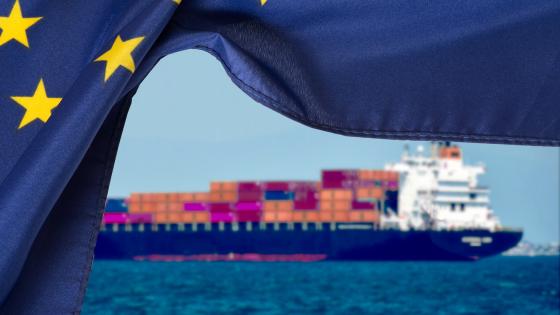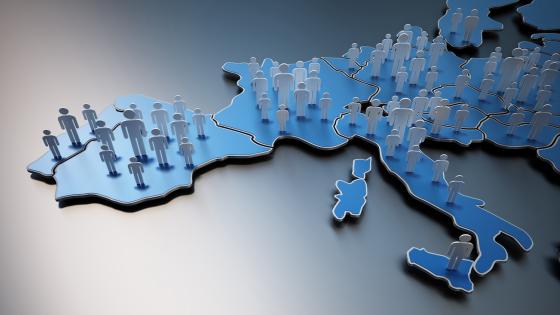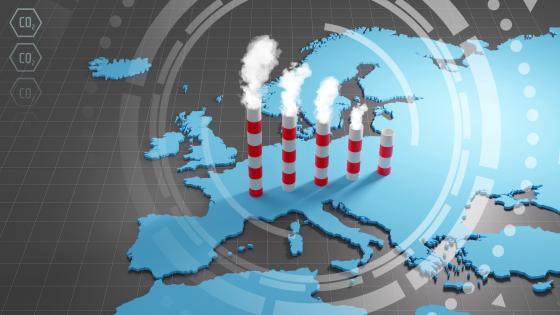In the last twenty years, Europe has changed profoundly: the EU has expanded from 12 to 27 members, created a unified internal market and introduced a single currency, the euro. This internal transformation has had important external consequences. With now the largest unified market in the world and the second most important global currency, Europe has become a very big global player. But the world has changed too, only more so. Market openness and technological change have spread worldwide and helped Brazil, China and India to become new global powers. Demographic change and poverty in other parts of the world such as Africa have brought mass international migration. As a result, foreign economic relations – be they in trade, development, business regulation, migration, money, or energy – have become central to the activities of the EU.
Globalisation has become the central theme of the European narrative for the 21st century. This year, on the occasion of the 50th anniversary, many leaders, such as European Commission President Barroso, have declared that the new raison d’être of the EU is ‘to use its collective weight to shape globalisation’ in order ‘to help Europeans prosper in a globalised world’ and ‘to create a new and better global order’.
Yet ‘Global Europe’ is very much a fragmented player, with responsibility over external economic policy being shared or split between the Council of Ministers, the Commission, the Eurogroup, the European Central Bank or the member states. This raises a question about coherence of actors and, ultimately, policies.
A new volume attempts to answer this question by examining Europe’s foreign policy in seven areas: trade, development, competition, financial market regulation, money and exchange rate, migration, and energy.
[1]
The analysis of these seven areas reveals that Europe confronts three agendas: a global, a transatlantic and a regional agenda.
A global agenda
Global economic integration raises questions about the provision of global public goods and global governance.
What is at stake here is adjustment and the response to the emergence of new global economic powers in some parts of the world (mainly Asia) and the absence of progress elsewhere (mainly Africa) in a context of increasing awareness of risks to the global commons and tensions about access to resources worldwide. The main policy instruments are trade policy, international finance and development policy, which are managed globally by three multilateral economic institutions, namely the World Trade Organisation, the International Monetary Fund and the World Bank.
The EU is in all these fields an undisputed player. It is one of the few key participants in all trade discussions, the issuer of one of the two main global currencies, a major stakeholder in the international financial institutions, and the number one provider of development assistance. However, the effectiveness of its policy in these areas varies depending on its internal governance structure - from excellent (in trade) or acceptable (in international money and finance) to second-rate (in development). In comparison with the US, the other main global player, the EU sometimes exercises world leadership and sometimes seems happy to take a secondary role. Furthermore, the EU faces the need to adjust its representation in international fora in accordance with its rapidly declining relative demographic and economic weight. The challenge here is one of effectiveness and, as developed in the Bruegel volume, this calls for significant reforms of internal governance and external representation.
A transatlantic agenda
The EU and the US are currently the ‘regulators of the world’. Together they account for 40% of world GDP (at PPP) and world trade and a little more than 10% of world population, yet my guess is that they probably produce around 80% of the international norms and standards that regulate world markets. Although this leadership is bound to dwindle eventually as new powers emerge and become more assertive, it is likely to persist for a few decades, because China, India and the other emerging powers are still far from having developed at home the set of elaborate laws and institutions that are essential in order to be effective regulators. In fields like competition policy, product and financial market regulation or technical standards, the US and the EU are, and will remain, ahead of the pack by virtue of their level of development, their experience and the size of their markets. Even Japan, a country of comparable development, has not really challenged their leadership in this area.
A big question is whether the EU and the US will act separately or even as rivals on the global regulatory scene or whether they will cooperate with each other and also involve the new global powers. Voices on both sides of the Atlantic complain about the other side’s suspected pretension to act as the regulator of the world. Regulatory competition is certainly healthy as it helps to sort out which rules perform best. But this should not hide the fact that the main joint challenge for the EU and the US is what role they will jointly play in setting the rules for the world economy of the 21st century, and with whom they will do so.
How well is the EU equipped for this task? Its effectiveness in external regulatory matters varies depending on internal regulatory organisation. It is either excellent (for instance, in competition policy) or merely satisfactory (for instance, in external financial market policy). But what has until now been in short supply is the strategic perspective, as illustrated by repeated failures to provide an overall framework for the transatlantic economic dialogue. German Chancellor Merkel’s recent initiative in this field is a welcome attempt to put EU/US dialogue onto a promising track. Yet as it involves, by its very nature, a host of different issues, responsibility for which is scattered among many agencies, the challenge of implementation is a significant one.
A regional agenda
The EU is the undisputed regional economic power and has much to gain from peaceful development among neighbours which include the Middle East and North Africa, as well as Russia and other European former Soviet republics. The EU’s neighbours have considerable potential. Experience in other regions of the world, especially Asia, illustrates the extent to which integration between countries of different development levels can benefit all partners if they successfully integrate within the web of world trade and FDI. But economic failure and political instability at the border can also act as major drags on prosperity.
Paradoxically, however, it is on this front that the EU is in fact the least effective. Two reasons account for this paradox. First, the European Neighbourhood Policy, which was meant to provide a framework for countries with little or no prospect of joining the EU, is in complete shambles: it is a plane without a pilot. Partners are drawn into procedures but are not given credible political and economic perspectives for their relations with the EU. Second, the EU has little or no common approach in two areas that are particularly important for interaction with its neighbours: migration, which stems from proximity as well as income and demographic differentials; and energy, where the EU possesses little resources, while its neighbours hold between 70 and 80% of the world’s oil and gas reserves. In spite of the Commission’s recent efforts, the effectiveness of EU policy in these two areas is not what it should be, simply because no common migration policy and common energy security policy exist. What is missing, therefore, is a genuine political commitment in these fields supported by effective implementation.
Conclusions
The three agendas clearly suggest a need for an integrated, coherent foreign policy to confront Europe’s global, transatlantic and regional challenges. Yet a common finding of the studies in the Bruegel volume is that current arrangements for Europe’s foreign economic policy ‘are both complex and evolving, that their efficiency is questionable, and that the choice of governance models is inherited from history rather than based on efficiency criteria’. Authors make a number of suggestions for improving the situation, which all revolve around the idea of delegating more responsibility for foreign economic policies either to the European Commission alone or to the European Commission in partnership with the Council of Ministers, possibly via the new High Representative of the Union for Foreign Affairs and Security Policy envisaged in the Reform Treaty.
The message of the volume is that the era when the EU was mainly centred on achieving internal integration and its external policy was simply a by-product of internal dynamics is over. In the fast-changing and challenging international environment of the 21st century, external economic relations have become too central an issue to the EU for it to remain a fragmented power.
Editors’ Note: The first in this series appears 18 October 2007 – the column by Ahearn and Eichengreen on how the EU should reform its IMF representation.
[1]
Fragmented Power: Europe and the Global Economy, edited by Andre Sapir, Bruegel, Brussels, 2007. For details, seewww.bruegel.org.


